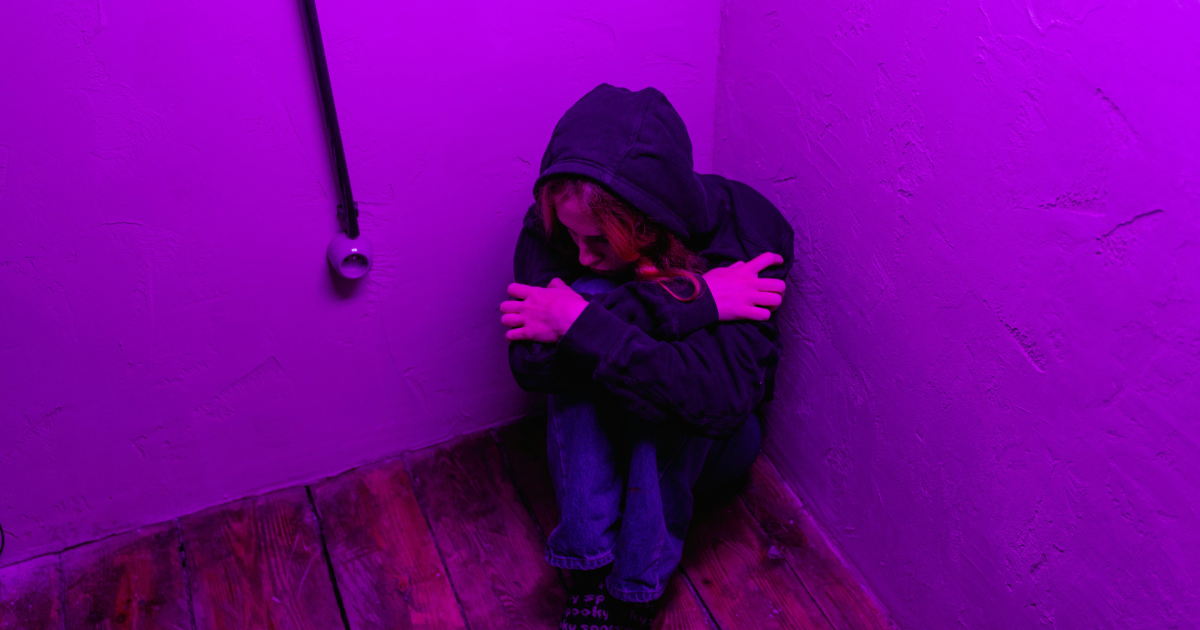Men are four times more likely to commit suicide compared to women. For a gap that huge, it is startling that the issue of male mental health is often overlooked.
Boys grow up with the same mantra: stay strong, never cry, deal with problems without help. This mentality in the long run turns many men to believe that showing feelings is a negative thing. This way of thinking not only affects their personality but it also deeply influences the way they go about seeking help for their mental health challenges. They end up shutting themselves off more and more from reality until they reach breaking point.
What makes men suffer in silence? What are the things to look out for before it is evident someone is struggling? Most importantly, what is the solution? Read on to find out.
Understanding Male Mental Health
Men struggle with mental health just like women do, but society’s norms and ideology don’t make it easy for them to talk about it or get help.
The Impact of Societal Norms
The idea that men must always be in control is one of the leading reasons why men find it hard to reach out for help and often hide their mental health issues.
- Tough it out mentality. Societal pressure to always “tough it out”
- Hiding struggles. Men may feel compelled to hide their struggles
The pressure to conform to these ideals and the fact that there are fewer outlets for emotional support only compounds the issue even further.
The Dangers of Avoiding Help
Avoiding help can delay treatment or cause men to turn to unhealthy outlets. This includes:
- Using substances to cope with emotions
- Engaging in dangerous behaviors as a distraction
Cultural Expectations and Emotional Experience
The fact is men also get lonely, anxious, and even depressed. They also like to feel loved, and they crave support and friendship. But oftentimes, they avoid showing it because of society’s narrative that emotions like this are peculiar to women. So rather than express these emotions, they’re more likely to bottle them up.
The problem with this is that these emotions don’t go away, they keep piling up until they become too much to handle. To change this, men need to be taught early on that it’s okay to talk about their emotions and take care of their mental health.
| Action | Emotional Benefit |
| Seeking help | Sign of strength, not weakness |
| Expressing vulnerability | Promotes emotional health |
Why Men Struggle in Silence
There are many reasons why men often overlook the signs of mental health illness. As already mentioned earlier in this article, society has a rigid definition of what masculinity should look like.
When people picture an ideal man, nine times out of ten, they envision someone who is tough, always in control, and doesn’t show any sign of weakness. Now, this is where the problem lies. The desire to be seen as “the ideal man” often leads men to keep their struggles a secret and act tough even when they’re falling like a pack of cards on the inside.
Men also keep their struggles to themselves more often than not because they don’t have as many support networks as women do. Without a strong support system, it’s even harder for them to open up and get the help they need.
Why Do Women Ignore Men’s Depression?
A common yet rarely discussed issue is why women sometimes ignore men’s depression. It’s often not intentional. Instead, it’s a misunderstanding of how men express emotional distress. This misunderstanding leads to a lack of support when men need it most.
Finally, the signs of mental illness in men don’t always look the way people expect. Men with depression might come across as irritable, angry, or show reckless behavior. This makes it easy to misunderstand their struggles or even get irked by them.

Common Signs of Mental Illness in Males
Both genders show depression in different ways. And even among men, the symptoms of depression can differ. In women, sadness is a major indicator of depression. But it’s a lot different for men.
As earlier mentioned, sudden outbursts of aggression and reckless behavior e.g. drug abuse and violence, are common signs of mental illness in men.
What Depression Looks Like in Men
Here are a few symptoms that men with depression might show:
Emotional Symptoms
- Increased irritability or aggression
- Emotional withdrawal
- Suicidal thoughts
- Loss of interest in activities
Physical Symptoms
- Chronic pain
- Digestive issues
- Unexplained headaches
- Decreased appetite
Behavioral Symptoms
- Physical or verbal abuse
- Picking fights
- Getting drunk often
- Substance abuse
- Dangerous or reckless driving
The Impact of Social Expectations
The issue of social expectations is probably the one factor that makes male mental health difficult to manage. This is because society expects men to be stoic, independent, and emotionally resilient.
- Stoic. Men should not show vulnerability
- Independent. Men are expected to handle things on their own
- Emotionally Resilient. Men are taught to cope without showing emotions
These expectations are ingrained from an early age. They shape how men view themselves and their emotions.
Cultural Roles and Expectations
Many cultures require men to play the following roles:
- Problem-Solvers. Expected to fix everything
- Providers. Responsible for supporting others financially
- The Strong Ones. Men are seen as the emotional pillars.
Though these roles are important, they place immense pressure on men. More often than not, it is anticipated that they cope with problems independently and conceal any signs of weakness without assistance. This can cause an emotional burden since men often feel that acknowledging they require support is a failure of their cultural identity.
Choosing to stay silent can lead to more serious challenges, such as:
| Challenge | Description |
| Anxiety | Constant worry, nervousness, and fear. |
| Depression | Sadness, loss of interest. Loa |
| Suicidal Thoughts | Despair, Feeling of hopelessness. |
Why Do Men Avoid Therapy?
Men choose to stay silent for many reasons, some of which have already been discussed in this article. These are a few reasons why men often avoid therapy:
- Cultural expectations
- Fear of appearing weak
- Social stigma
- Lack of male-focused resources
Men will be more willing to accept therapy if these issues can be addressed.
How Men Can Improve Their Mental Health
There are two qualities that are synonymous with almost every man. They find it difficult to talk about their feelings and they rarely ever ask for help even when they need to.

But it shouldn’t be so. Men need to stop trying to bottle up their feelings and act tough because leaving negative feelings can affect other aspects of life.
But considering the fact that this tendency is almost innate and ingrained in a man from a young age, it might be difficult to change so quickly. But change is a constant and men can move closer towards being more open with their feelings by taking small steps towards talking to friends, writing about their emotions, or seeing a professional.
Practical Steps Toward Emotional Well-Being
Addressing the Issue From the Root
Improving male mental health begins with allowing young men the freedom to speak about their emotions and be vulnerable without any fears that they’ll be ridiculed for it. This leads to better communication about emotions as they grow older. Older men should also learn to acknowledge and accept their emotions.
The Importance of Physical Health
Physical health does have a direct effect on mental health. Exercising regularly, eating right, and having a good amount of sleep can help maintain mental health.
| Activity | Benefit for Mental Health |
| Exercise | Boosts mood, reduces stress |
| Healthy Eating | Supports emotional well-being |
| Adequate Sleep | Improves emotional resilience |
Stress-Relieving Activities
We believe that managing stress is one of the most vital components of well-being, and activities such as spending time alongside friends, meditating, and working on different hobbies allow one to become more in control of their emotions. Stress can hit very hard, which is why these activities can be beneficial:
- Meditation
- Exercise
- Journaling
- Listening to Music
- Hobbies
- Deep Breathing
- Socializing with Friend
Supporting the Men in Your Life
Offering support can do a world of good for men who are battling with mental health struggles. You can show your support by:
- Encouraging Open Conversations
- Check-In Regularly
- A simple message like “How are you doing?” can do a world of good.
- Listen Without Judgment
- Encourage Professional Help
These steps can go a long way in helping the men around you stay afloat and healthy mentally.
Talk to Someone Who Understands
Seeking support doesn’t make you any less of a man. On the contrary, it’s a sign of strength, not weakness, because it takes a lot of courage to acknowledge when help is needed.
It takes even more courage to choose to break societal norms and prioritize your mental well-being, even when the world expects you to stay silent. Silence never helps, it only worsens the problem.
The good news is you don’t need to stay silent. At Pacific Coast Mental Health, you can find a safe space to not only talk about your feelings without any fear of discrimination but also get the support you need. We’re here for you, all you need to do is take the first step by reaching out to us today.
FAQs
Why do men struggle with mental health?
Men struggle because they keep their problems to themselves. They do this because of the expectations of the society and a lack of support groups.
What are the signs of depression in men?
Different men will show different signs of depression. But on the whole, the signs include emotional withdrawal, violence, low energy, and erratic behavior.
How can men improve their mental health?
Men can stay healthy mentally through exercise, conversations with friends, and by embracing therapy.
Why do men avoid therapy?
Men often avoid therapy because of the notion that they are supposed to figure things out on their own, and reaching out for help makes them weak.
How can I support a man with mental health issues?
Show up. Ask questions. Listen. And remind him he doesn’t have to go through it alone.








